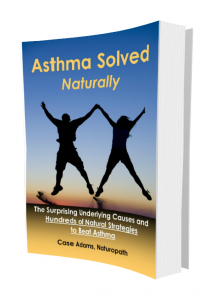Smoking Linked to Anxiety and Depression
Yes, most of us now know that first-hand, second-hand and even third-hand smoking is unhealthy. If we don’t, we need to dig out from the hole we’ve been hiding in.
But how many of us have connected smoking – which would necessarily include first-, second-, and third-hand smoking – with stress and anxiety? How about depression?
In this article
Large study links smoking to depression
Research from Virginia Commonwealth University and multiple Chinese university and hospital research institutions has in fact determined that smoking is associated with greater severity of symptoms among the depressed.
The researchers tested 6,120 Chinese women between 30 and 60 years old who had been diagnosed with severe depression. They collected patient data from 53 hospitals throughout China.
Of these 6,120 depression cases, nearly four percent were current smokers and two percent formerly smoked, while nearly six percent were lifetime smokers. Smoking rates are generally lower in China than in the U.S. Research has found Chinese smokers may be less than three percent of the population.
Most of the patients who smoked – over 60 percent – took up smoking prior to their onset of depression.
The researchers found that lifetime smokers reported more stressful life events, had higher levels of neuroticism, more thoughts of suicide and had more panic attacks and phobias compared to non-smokers.
While the researchers could not associate smoking with a greater risk of depression, they suggested the study data illustrates that smoking and depression may have common underlying factors.
Other studies confirm these findings
Other studies have confirmed the link between smoking and depression. A study from the Henry Ford Health System studied 4,414 people between 15 and 54 years old, and found that those with four or more depressive disorders were more than twice as likely to have nicotine dependence and were 50% more likely to smoke daily.
An 11-year study of 2,014 and 1,190 people from Norway found that the longer a person smoked, the greater the risk of having depression.
What is the mechanism?
A complex question. The researchers suggested that the research points to the fact that smoking alters dopamine – hormone/neurotransmitter necessary for brain and nerve cell function. The enzyme monoamine oxidase – also called MAO – is also altered by smoking. MAO is needed to breakdown and therefore regulate other neurotransmitter/hormones such as serotonin, melatonin and adrenaline. In other words, smoking interferes with the regulation of these important mood-related biochemicals.
This is also why Tai chi has been shown to reduce depression.
As we discuss here, secondhand smoke and even third-hand smoking can have similar effects as smoking directly. Secondhand smoking means a non-smoker is inhaling the tobacco smoke, while third-hand smoke means the residues of smoking – on furniture and other materials – can also have health consequences.
REFERENCES:
He Q, Yang L, et al. Smoking and Major Depressive Disorder in Chinese Women. PLoS One. 2014 Sep 2;9(9):e106287. doi: 10.1371/journal.pone.0106287.
Breslau N, Novak SP, Kessler RC. Psychiatric disorders and stages of smoking. Biol Psychiatry. 2004 Jan 1;55(1):69-76.
Klungsøyr O, Nygård JF, Sørensen T, Sandanger I. Cigarette smoking and incidence of first depressive episode: an 11-year, population-based follow-up study. Am J Epidemiol. 2006 Mar 1;163(5):421-32.
















